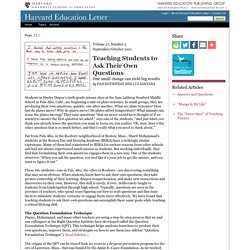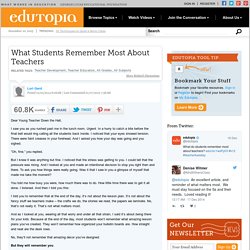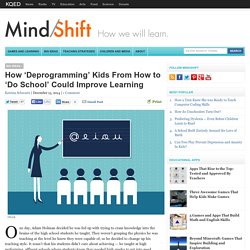

50 Questions To Promote Metacognition In Students. 50 Questions To Help Students Think About What They Think by Lisa Chesser Using the right questions creates powerful, sometimes multiple answers and discussions.

Aristotle said that he asked questions in response to other people’s views, while Socrates focused on disciplined questioning to get to the truth of the matter. Ultimately questions spark imagination, conjure emotions, and create more questions. The questions asked by a teacher or professor are sometimes more glaringly valuable than the information transferred to the students. If students are the ones gathering that information then they’re the ones learning it and student-driven learning cements lessons into the students’ mind making any lesson more powerful with this strategy. The questions are unrestricted and open the mind up to unfettered thought, perfect for innovation and understanding.
Logical Questions The addition of philosophical questioning to mathematics enhances critical thinking in every learner. The 8 Minutes That Matter Most. I am an English teacher, so my ears perk up when writers talk about their process.

I've found the advice handy for lesson planning, too. That's because both writing and planning deal with craft. In writing, you want your audience to be absorbed. You want them to care about your characters. You want them be delighted by the suspense. John Irving, the author of The Cider House Rules, begins with his last sentence: I write the last line, and then I write the line before that. That is the crux of lesson planning right there -- endings and beginnings. Harvard Education Publishing Group - Home. Students in Hayley Dupuy’s sixth-grade science class at the Jane Lathrop Stanford Middle School in Palo Alto, Calif., are beginning a unit on plate tectonics.

In small groups, they are producing their own questions, quickly, one after another: What are plate tectonics? How fast do plates move? Why do plates move? Do plates affect temperature? What animals can sense the plates moving? Far from Palo Alto, in the Roxbury neighborhood of Boston, Mass., Sharif Muhammad’s students at the Boston Day and Evening Academy (BDEA) have a strikingly similar experience.
These two students—one in Palo Alto, the other in Roxbury—are discovering something that may seem obvious: When students know how to ask their own questions, they take greater ownership of their learning, deepen comprehension, and make new connections and discoveries on their own. The origins of the QFT can be traced back 20 years to a dropout prevention program for the city of Lawrence, Mass., that was funded by the Annie E. What Students Remember Most About Teachers. Posted 12/02/2014 8:06AM | Last Commented 01/07/2015 7:38AM Dear Young Teacher Down the Hall, I saw you as you rushed past me in the lunch room.

Urgent. In a hurry to catch a bite before the final bell would ring calling all the students back inside. I noticed that your eyes showed tension. “Oh, fine,” you replied. But I knew it was anything but fine. You told me how busy you were, how much there was to do. I told you to remember that at the end of the day, it’s not about the lesson plan. And as I looked at you, wearing all that worry and under all that strain, I said it’s about being there for your kids. No, they’ll not remember that amazing decor you’ve designed. But they will remember you. Two of my former Kindergarten students enjoying a quiet moment together Your kindness. Because at the end of the day, what really matters is YOU. How ‘Deprogramming’ Kids From How to ‘Do School’ Could Improve Learning. iStock One day, Adam Holman decided he was fed up with trying to cram knowledge into the brains of the high school students he taught.

They weren’t grasping the physics he was teaching at the level he knew they were capable of, so he decided to change up his teaching style. It wasn’t that his students didn’t care about achieving — he taught at high performing, affluent schools where students knew they needed high grades to get into good colleges. They argued for every point to make sure their grades were as high as possible, but were they learning? “I felt I had to remove all the barriers I could on my end before I could ask my kids to meet me halfway,” Holman said. “The kids realized this made sense,” Holman said. “It turned my students into classmates and collaborators because I didn’t have a system in place to deny the collaboration,” Holman said. Holman didn’t just change his grading policies. The class read Timothy Slater’s article, “When Is a Good Day Teaching a Bad Thing?”